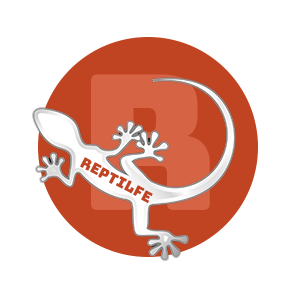Herbivorous pet lizards can make fascinating and leafy companions for reptile enthusiasts. These gentle creatures thrive on a diet primarily composed of plant-based foods. If you’re considering adopting a herbivorous lizard or already have one as a pet, it’s crucial to understand their dietary needs and provide them with a nutritionally balanced vegetarian diet.
In this article, we will delve into the world of herbivorous pet lizards, discover the best leafy greens for their diet, explore the transition process, and offer valuable tips to ensure their well-being. Whether you’re a seasoned reptile owner or a curious beginner, let’s embark on a journey to learn more about vegetarian diet options for these intriguing leafy companions.
Are Herbivorous Pet Lizards Happy on a Vegetarian Diet?
Herbivorous pet lizards, such as green iguanas, uromastyx, and chuckwallas, are indeed happy and thrive on a vegetarian diet. These fascinating reptiles have evolved to efficiently extract nutrients from plants, making them well-suited for a leafy diet.
By providing a nutritionally balanced vegetarian diet consisting of a variety of leafy greens, occasional fruits, and protein-rich plant-based foods, we can ensure their happiness and overall well-being. Vegetarian diets for herbivorous pet lizards not only meet their nutritional needs but also promote their natural behaviors and support their long and healthy lives.
What Are the Best Leafy Greens for Herbivorous Pet Lizards?

When it comes to providing the best leafy greens for herbivorous pet lizards, diversity is key. A varied diet ensures that these leafy companions receive a wide range of essential nutrients.
Some excellent options include collard greens, kale, mustard greens, dandelion greens, and turnip greens. These leafy greens are packed with vitamins, minerals, and fiber, promoting optimal health for your lizard.
Can Herbivorous Lizards Thrive Without Insects in Their Diet?
Contrary to popular belief, herbivorous lizards can indeed thrive without insects in their diet. These reptiles have evolved to extract the necessary nutrients from a plant-based diet, and they can meet their nutritional requirements through a diverse array of leafy greens, flowers, and edible plants.
While some herbivorous lizards may occasionally consume small amounts of insects or other protein sources, it is not a mandatory part of their diet. However, it is always advisable to consult a reptile veterinarian for species-specific dietary recommendations to ensure the optimal health and well-being of your herbivorous lizard companion.
How to Transition Your Lizard to a Vegetarian Diet Successfully?
Transitioning your lizard to a vegetarian diet requires a gradual approach to ensure a smooth adjustment. Start by introducing small portions of leafy greens alongside their current diet. Over 1-2 weeks, gradually increase the proportion of leafy greens while reducing the previous diet.
Monitor your lizard’s acceptance and adjust the ratio of leafy greens accordingly. Complete the transition by eliminating the previous diet, and offer occasional treats or supplements as needed.
What Fruits Can Be Safely Included in a Lizard’s Vegetarian Diet?
When it comes to a lizard’s vegetarian diet, certain fruits can be safely included as occasional treats. These fruits offer a delicious and nutritious addition to their leafy green-based meals. Safe fruit options for lizards include papaya, mango, berries, and melons.
These fruits provide natural sweetness and valuable vitamins and minerals. However, it’s important to remember that fruits should be given in moderation due to their higher sugar content.
Always introduce new fruits gradually and monitor your lizard’s response to ensure their digestive system tolerates them well. By incorporating safe fruits into your lizard’s diet, you can provide them with a varied and enjoyable dining experience while maintaining their nutritional balance.
Are There Any Vegetables That Should Be Avoided for Lizard Consumption?
When it comes to feeding vegetables to your lizard, it’s important to be aware of certain vegetables that should be avoided. Onions, garlic, mushrooms, and rhubarb are among the vegetables that can be toxic to reptiles.
These vegetables contain compounds that can be harmful to their digestive systems and overall health. It’s crucial to research and confirm the safety of any specific vegetables before including them in your lizard’s diet.
By being cautious and selective in your vegetable choices, you can ensure the well-being of your herbivorous lizard and provide them with a nutritionally balanced diet.
| Vegetable | Toxicity Level | Reason for Avoidance |
|---|---|---|
| Onions | High | Contain compounds that can damage red blood cells and lead to anemia in lizards. |
| Garlic | High | Contains substances that can be toxic to reptiles and cause digestive issues. |
| Mushrooms | Varies | Some species can be toxic and cause adverse reactions in lizards. It’s best to avoid them altogether. |
| Rhubarb | High | Contains high levels of oxalic acid, which can interfere with calcium absorption and lead to nutritional deficiencies. |
| Avocado | High | Contains a substance called persin, which is toxic to many reptiles, including lizards. |
Do Herbivorous Lizards Require Calcium and Vitamin Supplements?
Herbivorous lizards do require calcium and vitamin supplements to meet their nutritional needs. Calcium is crucial for bone health and proper muscle function, while vitamins, such as vitamin D3, aid in calcium absorption.
While leafy greens and other plant-based foods provide some amount of calcium, it is often not sufficient. Therefore, dusting or gut-loading their food with reptile-specific calcium and vitamin supplements ensures that herbivorous lizards receive the necessary nutrients for their overall well-being.
Regular supplementation, along with a balanced diet, contributes to the optimal health and longevity of these leafy companions.
How to Ensure Sufficient Protein Intake for Herbivorous Pet Lizards?

Ensuring a sufficient protein intake for herbivorous pet lizards is crucial for their overall health and well-being. While these leafy companions primarily consume plant-based foods, they still require a certain amount of protein in their diet.
Leafy greens, especially dark, leafy varieties, offer surprising amounts of plant-based protein. Including small portions of legumes, such as lentils or chickpeas, can also provide an additional protein boost.
It’s important to strike a balance and provide a variety of protein-rich plant-based foods to meet their nutritional needs. Consulting a reptile veterinarian for specific dietary recommendations is always recommended to ensure your herbivorous lizard receives the right amount of protein for optimal health.
Are there Any Special Considerations for Juvenile Herbivorous Lizards?
Juvenile herbivorous lizards require special considerations when it comes to their diet. These young reptiles are in a crucial stage of growth and development, and their nutritional needs differ from those of adult lizards.
Juveniles require a higher protein intake to support their rapid growth. It’s important to provide them with a balanced diet that includes a variety of protein-rich plant foods, such as dark, leafy greens and small portions of legumes.
Consulting a reptile veterinarian is highly recommended to ensure that juvenile herbivorous lizards receive the appropriate diet and feeding frequency for their specific needs.
Can Herbivorous Lizards Eat Flowers and Edible Plants?
Herbivorous lizards have the delightful ability to include flowers and edible plants in their diet. These colorful additions not only provide a visually appealing feast but also offer nutritional benefits.
Edible flowers such as hibiscus, nasturtium, and rose petals can provide vitamins and minerals while adding a touch of natural sweetness. Additionally, certain edible plants like prickly pear cactus pads offer hydration and fiber.
However, it is important to ensure that the flowers and plants are pesticide-free and safe for reptile consumption. Including these natural treats can enhance your herbivorous lizard’s diet, offering both nutritional value and a delightful dining experience.
What Types of Grains Can Be Part of a Lizard’s Vegetarian Diet?
When it comes to incorporating grains into a lizard’s vegetarian diet, it’s important to choose options that are suitable for their nutritional needs. Whole grains should not be the primary component of their diet, they can provide additional nutrients and variety. Here are some types of grains that can be included:
-
Cooked quinoa: Quinoa is a complete protein source and is packed with essential amino acids.
-
Brown rice: Brown rice is rich in fiber, vitamins, and minerals, making it a wholesome addition to a lizard’s diet.
-
Whole wheat pasta: Whole wheat pasta contains complex carbohydrates and provides energy for lizards.
Are There Any Natural Treats Suitable for Herbivorous Lizards?
There are natural treats that are suitable for herbivorous lizards. These treats can add variety and enrichment to their diet. Edible plants like hibiscus flowers, prickly pear cactus pads, or unsweetened baby food with appropriate ingredients can make excellent natural treats for herbivorous lizards.
It’s important to offer these treats in small amounts and ensure they are safe and pesticide-free. Natural treats can provide a source of excitement and mental stimulation for your leafy companions while still aligning with their vegetarian dietary needs.
What Are the Common Mistakes to Avoid When Feeding Herbivorous Lizards?
When it comes to feeding herbivorous lizards, it’s crucial to avoid common mistakes that can compromise their health and well-being. One common mistake is overfeeding high-oxalate greens, which can contribute to calcium deficiencies.
It’s important to balance their diet by offering a variety of nutrient-rich leafy greens. Another mistake to avoid is relying solely on commercial diets marketed as complete, as they may lack essential nutrients.
Additionally, providing fresh and clean water, avoiding excessive treats, and regularly assessing your lizard’s health are all key factors in maintaining a balanced diet.
How to Maintain a Balanced Diet for Herbivorous Pet Lizards?
Maintaining a balanced diet for herbivorous pet lizards is essential for their overall health and well-being. To achieve this, it’s important to offer a diverse selection of leafy greens, occasional fruits, and protein-rich plant-based foods.
Include nutrient-rich options like collard greens, kale, and dandelion greens in their daily meals. Additionally, provide small amounts of safe fruits such as papaya and berries as occasional treats. Consider incorporating protein sources like lentils or chickpeas to ensure a sufficient intake.
Remember to monitor your lizard’s health, consult a reptile veterinarian for guidance, and make adjustments based on their specific dietary needs.
Are There Any Alternative Diets for Herbivorous Lizards?

While herbivorous lizards thrive on a vegetarian diet, there are alternative diets available for reptile enthusiasts seeking convenient options. Commercial diets like Mazuri Tortoise Diet or Zoo Med Iguana Food offer formulated nutrition specifically designed for herbivorous reptiles.
These alternative diets provide a balanced blend of essential nutrients, vitamins, and minerals to support the health and well-being of herbivorous lizards. However, it is crucial to consult a reptile veterinarian before switching to alternative diets to ensure they meet your lizard’s specific dietary requirements.
In General
Herbivorous pet lizards can thrive on a vegetarian diet composed of a variety of leafy greens, occasional fruits, and protein-rich plant-based foods. By understanding their dietary needs, gradually transitioning their diet, and providing essential supplements, you can ensure the well-being of your leafy companions.
Remember to consult a reptile veterinarian for personalized advice and to monitor your lizard’s health regularly. With the right knowledge and care, you can create a nutritious and satisfying diet for your herbivorous pet lizards.




